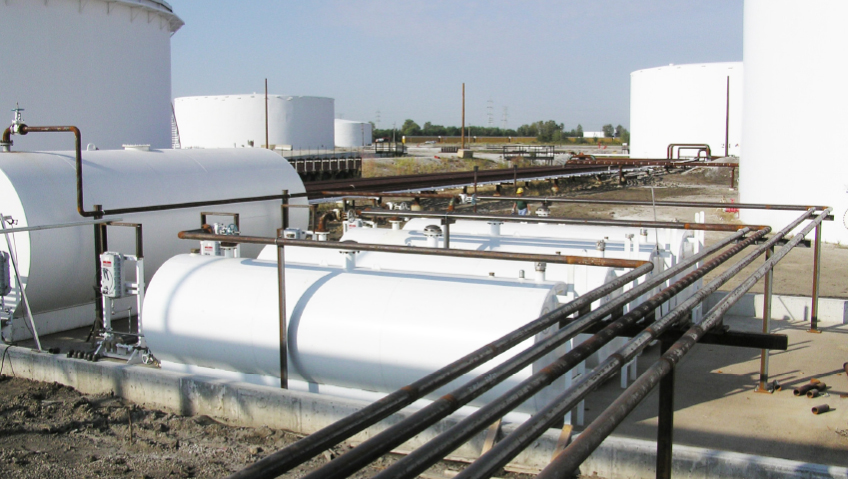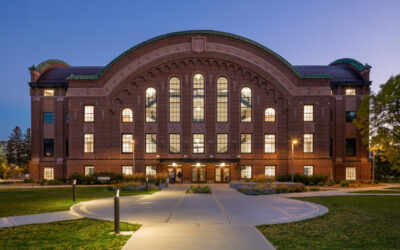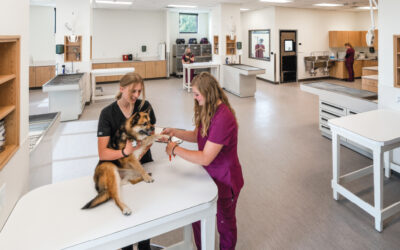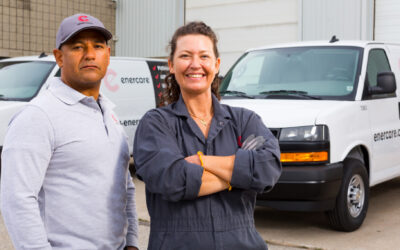For over 60 years, Missouri-based Gross Mechanical has been on a mission: to help rebuild America’s infrastructure.
One of the country’s most respected industrial contractors, GMC works for clients large and small in private sector industrial construction. Active in six industries—food and beverage, chemical and industrial manufacturing, oil and gas, pharmaceutical, power, and water and wastewater—the company’s wide range of services includes shop and field fabrication, field installation, project management, quality assurance and quality control, and much more.
A family-based company, the company is under the leadership today of Bradley Gross. President of Gross Mechanical for a year, Bradley studied mechanical engineering, as did his brothers, father, and grandfather. Years before he went to college, Gross learned the business by sweeping floors in the fabrication shop, making deliveries, watching others, and asking questions.
Spending a decade as Quality Assurance Manager before becoming President, Gross is proud of his experience, which saw him working his way through different programs and projects in the organization. “Other than accounting, I’ve done just about everything one can do in our organization,” he says. “I understand the company day-in and day-out, and that certainly helps.”
Founded by Bradley’s grandfather, the company bearing the family name was born out of determination and passion for the industry. From the 1930s to the 1950s, Bradley’s grandfather ran a company for the competition. He approached the owners many times to acquire the business but they refused to sell, which led him to create the Gross Engineering Company in 1960. Upon graduating from college in 1970, Bradley’s father came aboard. They started a successor company which is what they still go by today, Gross Mechanical Contractors Inc., a separate entity. In the 1980s, his father purchased everything from their grandfather.
“We’ve always been involved—even before we had the family business—in some way or another with the metal trades and such,” he shares. “According to family lore, a great-great uncle was a coppersmith who operated his own small shop during Prohibition. He was good enough at his craft that he was repeatedly thrown in jail for making copper stills, but he was also good enough to get bailed out the next day and go back to work.”
Focused on customer success
As the company states on its website, “Gross Mechanical is not your typical contractor. We are experts in you.” With American manufacturing booming, the company continues playing a role in the success of its clients in oil and gas, industrial manufacturing, food and beverage and other markets.
Long before President Biden announced the Build Back Better Act last October, Gross Mechanical came up with the line, ‘Helping Rebuild America’s Infrastructure,’ proudly stating: “This is not just about piecing together metal and concrete. This is about rebuilding America’s infrastructure. With every cut, every measurement, every weld, we bring our 50 years of pipefitting and fabrication experience to bear.”
While much of the company’s work is focused on piping or is building-related—not necessarily highways or bridges—Gross Mechanical’s involvement with oil and gas refinery projects helps with transportation, and its involvement in sewer, wastewater and water projects brings lower costs to clients, which trickles down to consumers. “Especially over the last year, even before President Biden got the bill approved, we were already starting to pivot toward water,” states Gross.
Presently, the company is involved with several wastewater treatment facilities, and is in the bid process to become the subcontractor of one of the largest design-build projects in America, which will take place from 2024 to 2026. It is, says Gross, “unlike anything the company has ever looked at.” The project team budgeted the overall project at $600 million.
To date, one of Gross Mechanical’s largest projects was with KCI Construction for the MSD St. Louis Grand Glaize Treatment Plant Project. Responsible for handling piping and equipment installation for the new influent structure, Gross Mechanical installed grit chambers, pre-aeration basins, peak flow storage basins, a return flow pump station, and more. The company was also responsible for installing 2,000 pieces of ductile iron pipe ranging from four inches (10 cm) to 64 inches (162.5 cm). The project’s timeline was 33,000 man-hours, and it was finished ahead of schedule and on budget.
Rapid growth
Working largely within a 150-mile radius of St. Louis, Gross Mechanical will occasionally take on more distant projects for clients like Black & Veatch, as it has done in the past. “Historically, our fabrication projects are typically two to three weeks long, and our on-site field services projects are usually two to three months total duration,” states Gross.
The company’s longest singular project, in Kansas City, took 19 months. For one oil and gas client in the St. Louis area, Gross Mechanical has been on site with a steady workforce for 14 years, performing constant maintenance and small capital project work.
Through its sister company’s service department group, the team will handle small jobs as well, such as a broken water fountain. Capital work on the low end ranges between $5,000 and $10,000, going up to the $10 million to $20 million range.
“The largest one we did, and I was personally involved, was a $32 million capital project in the Kansas City area for a power plant,” says Gross. Working alongside construction engineering company Black & Veatch, Gross Mechanical was the smallest mechanical contractor to have ever worked on this type of project. “We had a unique opportunity with Black & Veatch, and we were able to negotiate that project with them,” says Gross, “It was a very cool opportunity for me.” Fresh out of school for just about a year, It was Bradley’s first involvement with a large-scale, out-of-town project, which saw him taking part in almost every aspect, from receiving trucks for a site which was basically a cornfield to ordering tools, trailers, and running part of the work. “It probably would’ve taken me 10 years otherwise to accumulate that experience,” he says.
Getting on board early
Like other companies across the board, Gross Mechanical is presently facing shortages of labor and skilled craftspeople. Yet despite these shortages, customers are getting the company involved in projects much earlier than before. Instead of going through a competitive bid process, they are telling Gross Mechanical directly that they want them to handle the job. “It is essentially negotiated from there,” states Gross. “But what this allows us to do, by getting involved early, is add some value-added engineering to the project sooner and have a much larger impact on those projects.” Getting the company involved in design parameters sooner can often result in cost savings for clients.
Big or small, all projects follow a safety-first approach, which means a safety manager and several safety reps are present on active job sites. “Safety is first and foremost our primary concern with day-to-day operations,” comments Gross. “When we prepare an estimate for project, we budget for it in terms of time, dollars, and schedule to make sure it’s not an afterthought; we take care of it each and every morning before the crews mobilize to the job site. It’s really been impactful over the years. Our safety record is really second to none in terms of what some of our ratings are and what some of our OSHA numbers look like.”
Refusing to compromise on safety, Gross Mechanical is just as diligent about quality. Bradley is one of two certified welding inspectors who perform non-destructive examination tests on various job sites. To ensure objective testing, a third-party business handles X-Ray activities, especially important in the oil and gas world. “Whether it’s a weld, or in terms of what the guys are doing in terms of installation, there are no corners cut. We do the job right the first time.”
The oldest of four siblings—three of them involved in the third-generation family business—Bradley says his youngest brother, Michael, will probably run the company one day. “I am really excited to see what this organization, and the construction world, look like in the next 10 to 15 years,” he says. We’re looking forward to seeing it as well.













